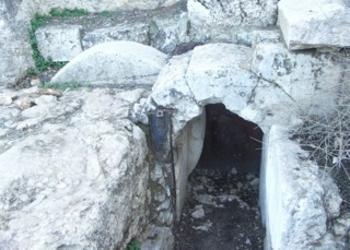The Resurrection of Christ
Hope for the Ages

The resurrection of Jesus Christ is the key historical and spiritual event for a Christian. Without this single event as the apostle Paul said, "your faith is futile" (1 Corinthians 15:17). Christ's resurrection is the key historical fact of all time.
The gospels are very careful to record the events on the morning the disciples discovered an empty tomb and began to see the risen Christ. One of the most interesting accounts is Luke's where he show it was a woman, Mary magdalene, who first discovered the empty tomb and announced it to the other disciples. Considering her background (Luke 8:2) and being a woman and the nature of her account all combine to say that the account as recorded is accurate. The early church wanted to make disciples and would certainly want to put forward a favorable impression. Yet they told an honest account of themselves and the fact of Christ's resurrection.
Within 25 years of Jesus' death Paul wrote 1 Corinthians 15 where he carefully lays out the fact of Christ's resurrection to the Gentile church. There is no record of any of his peers challenging him on this key fact. It was true and their were many eyewitnesses alive to testify. There is a consistent witness throughout the scripture providing prima facie evidence to Christ's resurrection.
But we will leave some things for scholars to debate. For a believer, during this season, the focus on Christ's resurrection is a central tenet of faith. What the disciples saw after three days and nights was a tomb withouta body and the risen Christ in recognizable bodily form. They could see and touch him with amazement. Their mourning was indeed turned to joy. Christ was raised from the realm of the dead and appeared multiple times over the coming days before finally ascending to heaven.
The truth of this event is vital to understanding God's plan of salvation for mankind. Part of that understanding is to place this event within the proper context of the festivals God gave to Israel and that Christ and the disciples were observing when He died. Instead of observing the false traditions associated today with Easter the early church observed the Passover and Days of Unleavened Bread. These days and their meaning have vital relevance for Christians today just as they did during the first century. The modern world has not moved beyond the need for the power of the resurrected Christ. When we observe the days God ordained we understand the key element of Christ's life in a repentant believer and the quality of life that results from this truth. Not only is this a key to understanding the salvation process but it is the foundation for building a successful Christian life today.
You can start to understand how this knowledge will improve your life by by reading our booklet God's Holy Day Plan: The Promise of Hope for All Mankind.
Today there are many attacks on our faith and basic truths of the Bible. You can prove Christ's life, death and resurrection and in doing so provide the foundation for the most basic and essential needs of life. Jesus Christ is alive today and is an advocate before the Father. Proving, believing and following this Christ is, I submit, the most critical priority for you.
